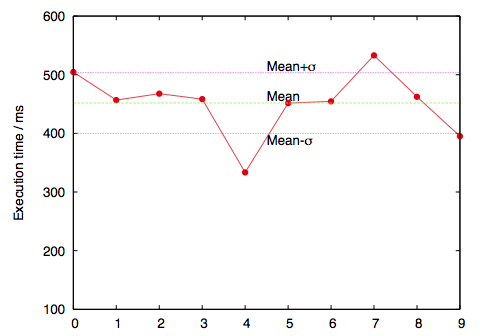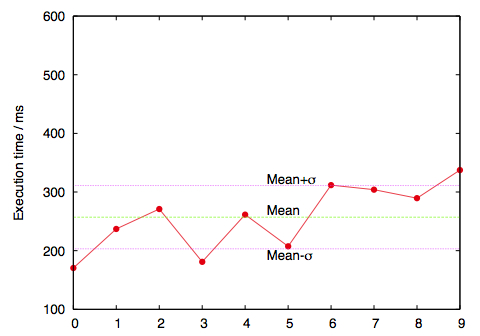On my quest to improve a client's Drupal site performance I considered installing the Alternative PHP Cache. It reduces the overhead of compiling the PHP sources into opcode on each request by caching the compiled code1. 2bits posted a very good case study about PHP opcode caches a while ago.
I have seen significant performance improvements from opcode caches in past Drupal projects. But every site is different. Usually the relative efficiency of an opcode cache correlates with the share the bootstrap process takes of total page rendering time. This can be easily measured with a profiling tool like Xdebug and a visualization software (Kcachegrind is an excellent free software product, for MacOS X there's MacCallGrind).

Visualization of Xdebug profiling results with MacCallGrind
After the first profiling run, it became clear that the bootstrap process only amounted to about 10% of total page rendering time. Since the full rendering period was an order of magnitude greater than the whole bootstrapping period, any performance improvement in the bootstrapping process would have no perceivable performance impact. Nevertheless I took some time to make some observations. I was especially curious about comparing APC running with apc.stat enabled and disabled.
For the purpose of this test I put the site on a Virtual Box machine running Debian Wheezy: PHP 5.3.10 with Xdebug 2.1.3, MySQL 5.1.58, PHP APC 3.1.2, Apache 2.2.22. Some initial test runs were made to establish the amount of memory APC needed to avoid cache resets, the actual experiment used a value of 128 MB for apc.shm_size. To warm up the APC cache two requests to the page were made before starting each test series. A test series consists of requesting the homepage with profiling enabled and noting the total execution time of drupal_bootstrap and the share it has of the total page rendering time — repeated 10 times.

Execution time of drupal_bootstrap with APC cache disabled

Execution time of drupal_bootstrap with APC cache enabled
The results show a reduction in execution time between 25% and 60% taking the standard deviation into account. Disabling apc.stat had no measurable effect.
1. PHP has been designed for adding dynamic content to web pages by embedding snippets of code (<?php ... ?>) in HTML markup. Still the most popular way of running PHP is by means of Apache with mod_php which is originally written for that use case. Each time a request comes to a page containing PHP that code is parsed and executed in fractions of a second. The growth of the PHP community and increasing complexity of problems being solved with PHP has led to the development of ever more complex software - like Drupal. If you look at the source of Drupal most of the files contain purely PHP with a little bit of HTML here and there, primarily in the themes. Now the cost of the parser loading and compiling the sources into byte code to be executed by the interpreter has become a challenge. An opcode cache like APC saves time because it remembers the compiled code in memory thereby reducing the overhead per request.



Comments
Add new comment